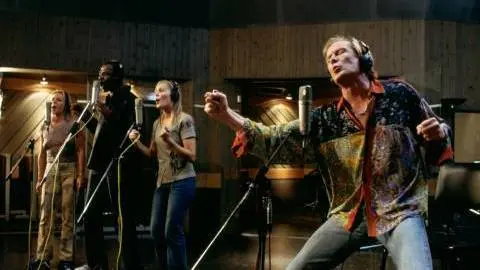Economics, actually: Our 2025 hit list
‘Love, Actually’ remains a firm festive film, but its themes and core message now appear dated and, at times, a little shocking. As Donald Trump prepares to re-enter the White House, Europe continues to struggle with stagnation, and conflict continues to rage, then I argue that, a bit like the movie, global economies really need to move on
Over the last five years, every single year has brought enough economic and political action you used to see in a decade. 2024 was no different. We had a record number of elections where we're seeing the rise of populism, central banks u-turned and slashed rates, and we economists were given a sharp reminder that there are, indeed, both cyclical and structural elements to growth.
We learnt a lot too. In China, the correction of a real estate bubble really does take years, not months. In the US, inflation can come down but costs can remain high. And those living costs can decide elections, not GDP growth or the speed of job creation. It's no longer 'the economy, stupid', but 'inflation, stupid'.
Here's another learning: it's all very well for central bankers to pat themselves on the back for managing a soft landing with rate hikes, but my goodness, we learnt that they're still far away from ordinary people's lives. And, hey, Europe! Did you forget that a gradual weakening of competitiveness will take its toll on the economy? I'm particularly looking at you, Germany.
The heady days of the Olympics, which apparently in the eurozone always tend to end with a public finance bang - first in Greece, now in France - seem an awfully long time ago. So, what do we have to look forward to next year?
It just so happens I was rewatching that Christmas favourite, 'Love, Actually', over the weekend. I know, I'm a softie at heart. And it started dawning on me that this sweet but now strangely dated movie classic may have more than one parallel with the economic world right now.
We have the old rockstar making an unexpected but stellar comeback. Will he still be filling the stadiums next year with his tariff song, or will he be holed up with his best mate in front of the TV?
There's Mark with his secret love for his best friend's wife. Might that be Europe on the doorstep of the White House next year, begging for some attention and pleading against a trade war?
Or perhaps Mr Trump himself, an unlikely Hugh Grant, will have to start a door-to-door search for his European partners as he realises that only a strong Transatlantic relationship can truly make America great again.
How about Europeans and Americans making great friendships like Colin Frissell did when he met those three American women? Or European consumers spending their way out of stagnation as Alan Rickman’s Harry did when splurging on a necklace for his secretary?
‘Love, Actually’ is a movie of hope and unfulfilled wishes, of risk-taking but also complacency and, above all, a film of sometimes completely unrealistic stories. This is where it reflects our Macro Outlook for 2025. With our three calls, we present our safe bet, our riskier calls and some bolder ones, not unlike the movie.
But ‘Love, Actually’ is of its time; it hasn't aged too well. We're not likely to see this kind of old-genre romantic comedy in cinemas in 2025. Our global leaders, however, still seem intent on pushing onto us next year those same tried and tested themes with which we've become so familiar: tariffs, trade wars, isolationism, kicking the can...
I think we deserve better, actually.
Download
Download article
4 December 2024
Economics, Actually’, our 2025 hit list - All the articles This bundle contains 17 articlesThis publication has been prepared by ING solely for information purposes irrespective of a particular user's means, financial situation or investment objectives. The information does not constitute investment recommendation, and nor is it investment, legal or tax advice or an offer or solicitation to purchase or sell any financial instrument. Read more
